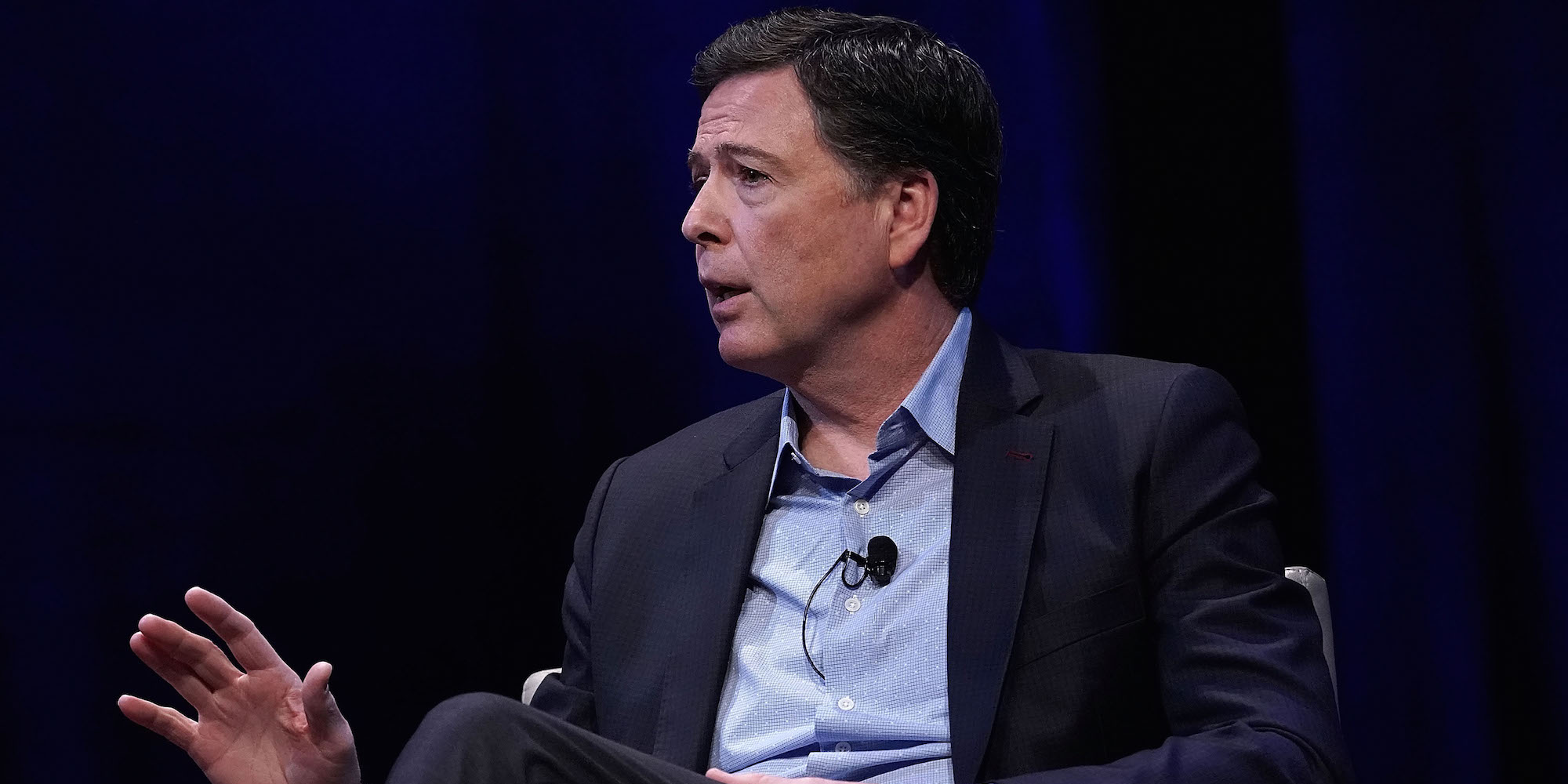- Former FBI Director James Comey said he was confused that the special counsel Robert Mueller chose to neither charge President Donald Trump with obstruction of justice nor exonerate him.
- Speaking at an event on Tuesday in Charlotte, North Carolina, Comey said that while he had “great faith” in Mueller, who led the FBI directly before him, “the entire rationale for a special counsel is to make sure the politicals aren’t making the key charging decisions.”
- Summarizing Mueller’s report, filed Friday, Attorney General William Barr said Mueller uncovered no evidence that Trump or his team conspired with Russia to influence the 2016 presidential election.
- Barr also said there was not enough evidence to bring obstruction charges.
Former FBI Director James Comey said on Tuesday that he found it confusing that the special counsel Robert Mueller decided to neither charge President Donald Trump with obstruction of justice nor absolve him.
Speaking to an audience in Charlotte, North Carolina, Comey wondered why the decision whether to charge the president was left in the hands of Attorney General William Barr and Deputy Attorney General Rod Rosenstein, adding that leaving political figures to make charging decisions undermined the whole point of a special counsel investigation.
Summarizing Mueller’s report, submitted Friday, Barr said that Mueller declined to reach a conclusion on obstruction and “did not establish” that Trump or his campaign colluded with Russia to influence the 2016 election.
“The part that’s confusing is I can’t quite understand what’s going on with the obstruction stuff,” Comey said, according to NBC News.
"And I have great faith in Bob Mueller, but I just can't tell from the letter why didn't he decide these questions when the entire rationale for a special counsel is to make sure the politicals aren't making the key charging decisions," he added.
Comey was a senior official in the Department of Justice while Mueller was the FBI director. When Mueller stepped down in 2013, Comey took his place. Trump's decision to fire Comey in May 2017 was among the factors that prompted the Justice Department to appoint Mueller as special counsel.
In his summary of Mueller's report submitted to Congress on Sunday, Barr described the grounds for his decision not to charge the president with obstructing justice.
Barr wrote that "to obtain and sustain an obstruction conviction, the government would need to prove beyond a reasonable doubt that a person, acting with corrupt intent, engaged in obstructive conduct." But he said the "absence of" evidence of collusion meant that corrupt intent could not be established.
In his remarks Tuesday, Comey questioned that decision.
"The notion that obstruction cases are somehow undermined by the absence of proof of an underlying crime, that is not my experience in 40 years of doing this, nor is it the Department of Justice's tradition," he said, according to NBC News. "Obstruction crimes matter without regard to what you prove about the underlying crime."
While allies of the president have hailed Mueller's report as vindication, Democrats have demanded to see it in full, including the grounds for his declining to reach a conclusion on obstruction charges.
Legal scholars have torn into Barr's reasoning for not filing obstruction charges. And some critics have said Mueller's decision could weaken legal oversight of the White House and embolden future presidents.
Former Democratic Rep. Elizabeth Holtzman, a member of the House panel that impeached President Richard Nixon in 1974, told The New York Times, "They're just trying to create a new kind of monarchy in the United States and have a president who's not accountable."

